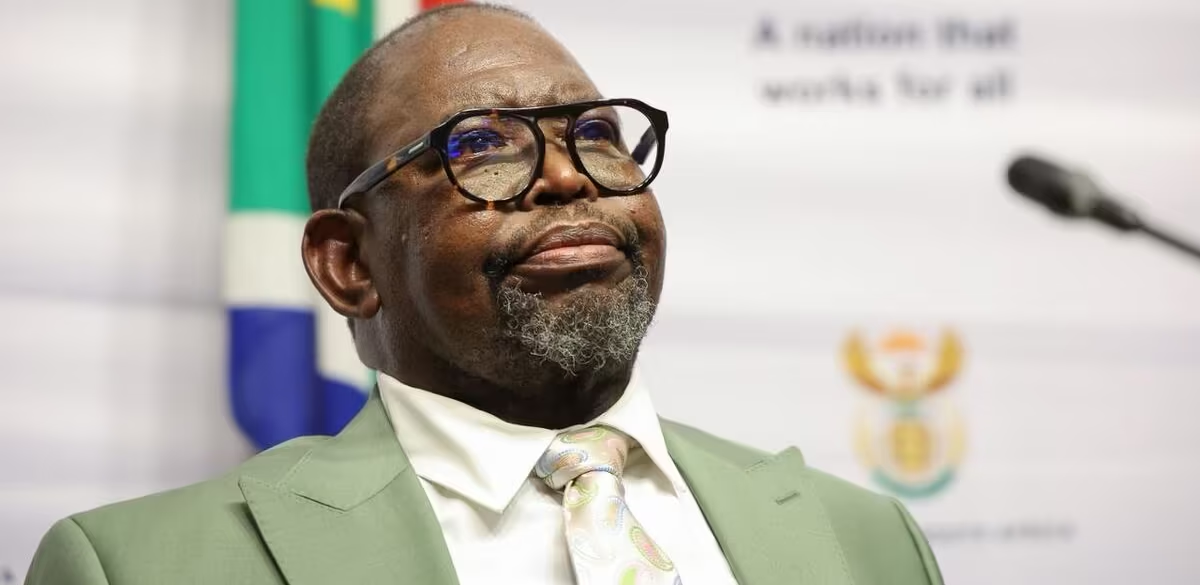MTBPS 2025| Godongwana beats reform drum as US tiff hobbles investment
Times LIVE | 12.11.2025 19:40
Finance minister Enoch Godongwana tabled his medium-term budget policy statement (MTBPS) in parliament on Wednesday. The tabling comes after gross fixed-capital formation declined in 2024 and in the first half of 2025.
“Global growth is estimated to slow slightly to 3.2% in 2025 amid ongoing trade tensions, geopolitical uncertainty and supply chain disruptions,” he said. “While the shocks of the unilateral tariffs imposed by the US have not materialised as severely as expected, their delayed effects, coupled with rising protectionism, pose future risks to global productivity and price stability.”
Referencing the ongoing diplomatic rift between South Africa and the US, Godongwana slammed the falsehood of a white genocide being perpetrated in the country.
“South Africa, like many nations around the world, is grappling with intensifying global competition and mounting economic and political divisions. It is against this fractured landscape that South Africa has been falsely accused of genocide against its white community and threatened with punitive sanctions on the basis of these falsehoods.”
In the MTBPS document, Godongwana acknowledged that while risks to the economic outlook were tilted to the downside, further delays in implementing reforms in sectors including energy and logistics would impede “much-needed growth-enabling” investment.
“Gross fixed capital formation declined by 3.1% in the first half of the year, following a 3.9% decline in 2024. Investment by the private sector and public corporations fell in response to global trade policy uncertainty and persistent bottlenecks in the network industries.”
This week, US President Donald Trump took to his social media networking site Truth Social to announce that he would not attend the G20 summit taking place in Johannesburg in November, nor would he send Vice President JD Vance or secretary of state Marco Rubio.
Trump justified his decision using long-discredited claims that Afrikaner farmers were being killed and dispossessed of their farms by the government. Despite this, Godongwana remained optimistic about the potential that reforms had to attract investment.
“The outlook is expected to improve as growing public and private investment in transport and energy boosts the broader investment climate. [These include] reforms to improve public sector infrastructure planning, procurement, spending, financial management and project execution.”
The gross value added in agriculture grew by 9.8% in the first half of the year compared with the same period in 2024, supported by good rain and expanded plantings.
“A delayed harvest may lift third-quarter figures, and a likely La Niña could boost summer crops. High temperatures and animal diseases have weighed on profitability, but conditions remain positive, despite weaker prices, rising input costs and risks to US-bound exports.”
The gross value added in mining contracted by 2.9% in the first half of 2025 compared with the same period in 2024. However, this was blamed on continued port and rail bottlenecks and adverse weather conditions.
“Bulk commodity exports continue to be hampered by poor rail and port performance, though volumes have stabilised. Cost pressures and adverse weather also weighed on output in the first half of 2025.”
The MTBPS said while tariffs have not risen as sharply as expected since Trump announced his “Liberation Day” tariffs in April, the delayed price effects of the growing protectionism and supply chain disruptions may increase costs, reduce productivity and weigh on medium-term growth.
“The prospect of higher tariffs buoyed trade in the first half of the year as companies brought forward imports and exports, but this is expected to wane over the remainder of 2025, as is the impact of deficit spending in advanced economies.”
During his speech, Godongwana said global equity markets have surged, driven by artificial intelligence-related stocks and central bank rate cuts, but warned that this rally carried the risk of sudden reversals.
TimesLIVE









